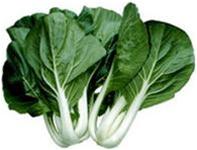Detection of anti-cancer drug compounds in vegetables
New Zealand scientists say they have found new compounds against cancer in cruciferous vegetables such as broccoli, cauliflower, cabbage .
 (Photo: TTO) According to Christchurch medical school team, a compound called isothiocyanate in mustard varieties such as watercress, broccoli, cauliflower, cabbage, brussels sprouts, radishes, kale . helps to destroy the sacrifices. Cancer cells are currently resistant to drugs.
(Photo: TTO) According to Christchurch medical school team, a compound called isothiocyanate in mustard varieties such as watercress, broccoli, cauliflower, cabbage, brussels sprouts, radishes, kale . helps to destroy the sacrifices. Cancer cells are currently resistant to drugs.
As explained by Mark Hampton, the lead researcher, a protein called Bcl-2 has made human cells resistant to normal cell self-destructing processes that help get destroyed cells out of the body. Cancer cells with a lot of Bcl-2 have also increased resistance, making it more difficult to treat the disease.
Isothiocyanate in vegetables has the effect of limiting the effects of Bcl-2, making Bcl-2 cancer cells more susceptible to treatment drugs, helping to prevent cancer resistance.
The team is continuing to work to find out how isothiocyanate limits the effects of Bcl-2, which could produce new drugs that are more effective at fighting cancer.
T.VY
- Gnarled vegetables: Can not cure but prevent cancer
- The compound indole-3-carbinol in vegetables can prevent bowel cancer
- How to eat delicious, healthy, but 'destructive' vegetables in your body
- New compounds can kill many types of cancer
- 7 kinds of summer vegetables against cancer
- Detects compounds in tropical plants that cure pancreatic cancer
- Google developed a cancer detection device
- Vegetables do not prevent cancer as strongly as we think
- Nano-electronics can detect the risk of stomach cancer
- Rapid detection of cancer with test strips
- Early detection of male cancer should not be overlooked
- New evidence of anti-cancer green vegetables
 Green tea cleans teeth better than mouthwash?
Green tea cleans teeth better than mouthwash? Death kiss: This is why you should not let anyone kiss your baby's lips
Death kiss: This is why you should not let anyone kiss your baby's lips What is salmonellosis?
What is salmonellosis? Caution should be exercised when using aloe vera through eating and drinking
Caution should be exercised when using aloe vera through eating and drinking